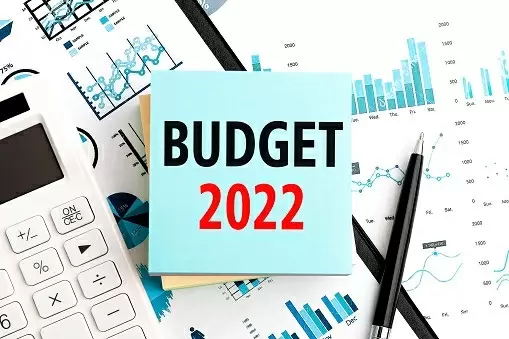Eye on Budget: Relief to individuals expected to mitigate inflation, unemployment
22-January-2022

In an environment of high inflation due to higher input cost and high unemployment caused due to the Covid-19 pandemic, the government is expected to provide relief to individuals and increase disposable income to boost consumption in the Union Budget FY23, to be tabled in the Parliament on February 1.
The government may increase the limits on standard deduction from Rs 50,000 to Rs 1 lakh, SMC Global Securities said in a report.
It expects increase in tax benefit on home loan interest and principal repayment by Rs 50,000 each, higher from the current level of Rs 2 lakh and Rs 1.5 lakh, respectively. The government may provide interest subsidy of 3-4 per cent on home loan for three years.
It is expected that the budget allocation for the Railways is set to hit a record level next fiscal as the government gears up to support a major makeover for the national transporter.
Besides, there is a possibility of excise duty reduction on petroleum products. The market is also looking for support measures for sectors such as housing, auto, and auto ancillaries, and PLI-related measures in multiple sectors.
The government may announce asset monetisation of public sector undertakings (PSUs) under the National Monetisation Pipeline (NMP). It can also monetise the housing and commercial real estate it owns by floating REITs.
The disinvestment plan is likely to become clearer with the Budget. The government is trying to narrow the gap via its disinvestment plan. So far, the government has been able to raise Rs 9,330 crore through selling its stakes in PSUs, the report said.
The LIC IPO, which is expected to hit the market in March-end, may help the government in a big way by raising over Rs 1 lakh crore.
The total disinvestment target of the government is Rs 1.75 lakh crore for the current fiscal.
The pending big-ticket divestments apart from the LIC IPO include IDBI Bank, Bharat Petroleum Corporation, Pawan Hans, Shipping Corporation of India, BEML, and Container Corporation of India, among others, the report said.
The expectation is that this Budget will incentivise both the rental housing market and the affordable housing sector. The sector has huge expectations from the upcoming Budget such as demands of industry status and easy availability of finance. A single-window clearance mechanism has remained a demand for many years now.
Globally, the price of fertilisers surged significantly, adversely affecting India which depends on import. The price of urea, which is most commonly used, tripled to $990/tonne while DAP price doubled to $700-800 per tonne, as compared to prices that existed one-and-a-half year ago.
Besides, the recent spurt in natural gas, which accounts for 80 per cent cost of urea production, is expected to continue to raise the production cost of urea.
Currently, the farmers are facing shortage of fertiliser and the agriculture department has urgent intervention of the Centre to ensure adequate supply of fertiliser.
The farmers are already in distress due to the pandemic which hit rural India hard, and higher price and shortage of fertiliser would further impact their financial position.
The government is thus expected to focus on improving the farmers' earnings through enhanced support for the agricultural economy. This will benefit the entire ecosystem of agri-inputs, i.e., seed, fertiliser, crop protection, chemical and tractors etc.
In the last few Budgets, the government has raised the budgetary allocation towards fertiliser subsidy and in the forthcoming Budget, we expect fertiliser subsidy of Rs. 1.3 lakh crore, the report said.
Besides, the government may also raise farm credit to Rs 18 lakh crore, up from Rs 16.5 lakh crore for the current year, continuing with the same policy adopted earlier, to support the farmer to recover from the pandemic, the report said.
ECLGS (Emergency Credit Linked Guarantee Scheme) was introduced by the government in March 2020 to provide financial support to the pandemic-hit MSME sector, which was later extended to other stressed industries along with enhancing the credit limit from Rs 3 lakh crore to Rs 4.5 lakh crore.
The scheme is extended till March 2022. The stress in the sector is still very high and many of the eligible MSMEs are under various stages of restructuring.
SMC Global Securities expects the government to further extend the scheme till March 2023 or till such time the economy regains strength, which would enable the banks to continue the liquidity support. - IANS
Conspiracy Underway To Remove Nitish Kumar, Claims Mukesh Sahani
‘Something Wrong’: SC Questions Madras HC’s Handling of Karur Stampede Case
Sir In Bengal: Eci Identifies 58 Lakh Excludable Voters After Enumeration Phase Ends
Shivakumar Defends Hate Speech Bill, Accuses BJP Of Spreading Division, Hatred Among People
Opposition Moves to Impeach Justice G R Swaminathan; Kanimozhi Cites Loss of Public Trust









